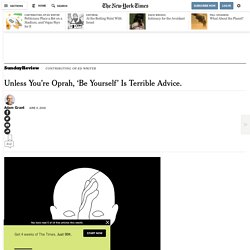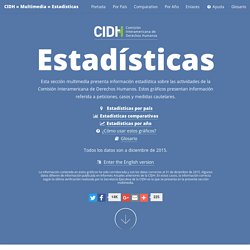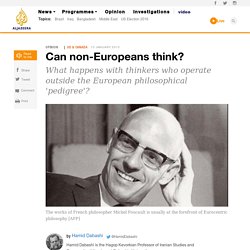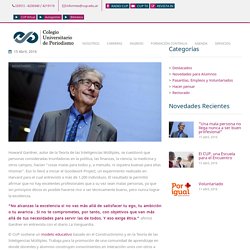

BBC World Service - The Documentary - Neighbour: A BBC World Service - Sundance Institute Collaboration. Change.org · La plateforme mondiale pour le changement. Nytimes. But for most people, “be yourself” is actually terrible advice.

If I can be authentic for a moment: Nobody wants to see your true self. We all have thoughts and feelings that we believe are fundamental to our lives, but that are better left unspoken. A decade ago, the author A. J. Jacobs spent a few weeks trying to be totally authentic. “Deceit makes our world go round,” he concluded. How much you aim for authenticity depends on a personality trait called self-monitoring. But if you’re a low self-monitor, you’re guided more by your inner states, regardless of your circumstances. Low self-monitors criticize high self-monitors as chameleons and phonies. But in the rest of our lives, we pay a price for being too authentic.
Interestingly, women are more likely to be low self-monitors than men, perhaps because women face stronger cultural pressures to express their feelings. If not our authentic selves, what should we be striving to reach? When Dr. It worked. Continue reading the main story. First Evidence of Corn Beer in Southwest Discovered on Teeth From Ancient Burials. %C3%ADndice y fragmento 276640. Tema6 antropologia. CIDH: Estadísticas de la Comisión Interamericana de Derechos Humanos. Peticiones Una petición es una denuncia presentada ante la CIDH en la que se alegan violaciones a los derechos humanos.

Tras la adopción de un informe de admisibilidad, la petición se convierte en un caso. Peticiones Recibidas Bajo el renglón de los gráficos llamado “Peticiones Recibidas” se muestra el número de peticiones que la CIDH recibió en todo el año, con cierre al 31 de diciembre de cada año. Estudio Inicial Etapa de revisión inicial en la cual se analiza si la petición reúne los requisitos establecidos en el artículo 28 del Reglamento de la CIDH, teniendo en cuenta exclusivamente la información aportada por el/la peticionario/a.
Decisiones sobre apertura La etapa de revisión inicial finaliza con una decisión sobre la apertura o no apertura a trámite de la petición recibida por la CIDH. Can non-Europeans think? Story highlights In a lovely little panegyric for the distinguished European philosopher Slavoj Zizek, published recently on Aljazeera, we read: There are many important and active philosophers today: Judith Butler in the United States, Simon Critchley in England, Victoria Camps in Spain, Jean-Luc Nancy in France, Chantal Mouffe in Belgium, Gianni Vattimo in Italy, Peter Sloterdijk in Germany and in Slovenia, Slavoj Zizek, not to mention others working in Brazil, Australia and China.

What immediately strikes the reader when seeing this opening paragraph is the unabashedly European character and disposition of the thing the author calls "philosophy today"-thus laying a claim on both the subject and time that is peculiar and in fact an exclusive property of Europe. Even Judith Butler who is cited as an example from the United. “Una mala persona no llega nunca a ser buen profesional” Howard Gardner, autor de la Teoría de las Inteligencias Múltiples, se cuestionó que personas consideradas triunfadoras en la política, las finanzas, la ciencia, la medicina y otros campos, hacían “cosas malas para todos y, a menudo, ni siquiera buenas para ellas mismas”.

Eso lo llevó a iniciar el Goodwork Project, un experimento realizado en Harvard para el cual entrevistó a más de 1.200 individuos. El resultado le permitió afirmar que no hay excelentes profesionales que a su vez sean malas personas, ya que sin principios éticos es posible hacerse rico o ser técnicamente bueno, pero nunca lograr la excelencia. “No alcanzas la excelencia si no vas más allá de satisfacer tu ego, tu ambición o tu avaricia . Si no te comprometes, por tanto, con objetivos que van más allá de tus necesidades para servir las de todos. Y eso exige ética.” afirmó Gardner en entrevista con el diario La Vanguardia. National Criminal Justice Reference Service. Ortografía Infinita. ¿Confesar o no una infidelidad. Por Alessandra Rampolladiciembre 27, 2015- 00:00h Si confiesas tu infidelidad, la persona engañada sentirá celos, desconfianza, culpabilidad, decepción, coraje, resentimiento, falta de confianza en sí mismo y temor a perdonar por miedo a que la situación vuelva a repetirse.

Foto: shutterstock Cuando se comete una infidelidad, ¿qué es lo mejor? ¿Confesarla o no? En general, cuando el otro no lo sospecha, ni lo ha descubierto, la mejor alternativa es guardar silencio.